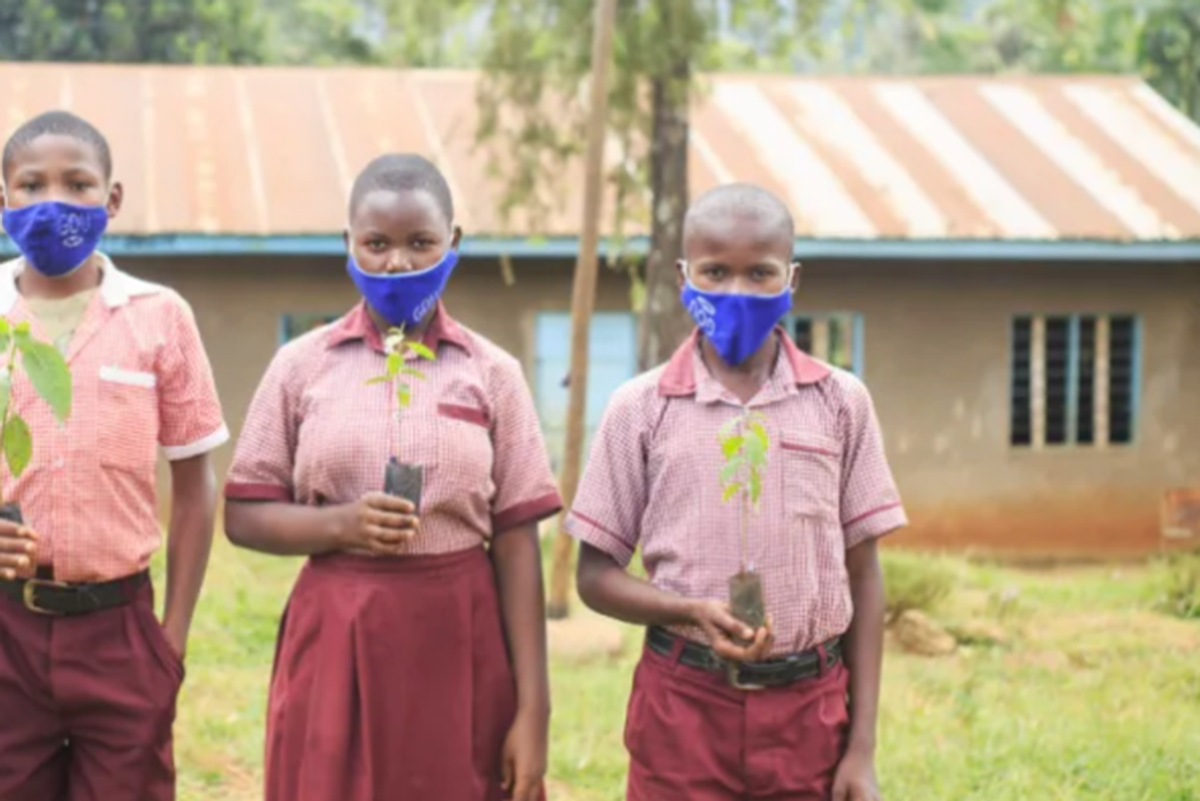
The forests of Uganda are under severe threat. They are being lost at a rate of almost 2% a year and from 1990 to 2010, the country lost 31% of its forest cover – a reduction from 19,000 square miles to just 14,000.
Deforestation has been caused by a rapid population increase, climate change, agricultural expansion, logging, weak legal protections, and poor enforcement of the laws that are on the books.
However, Uganda is replanting some of its deforested areas thanks to the help of people who live 9,000 miles away.
In 2008, a program was launched in Wales to plant a new tree in the country every time a child is born or adopted. The program was named Size of Wales because the phrase is often used to describe large areas that have been deforested around the globe.
The was so successful that it hit its target goal of planting 7,700 square miles of new forest by 2013. In 2018, organizers decided they would keep the program going with a new goal. This time they would protect an area twice the size of Wales.
They chose Uganda because of its threatened forests, focusing specifically on an area known as Mbale in the eastern region of the country. Mbale is a large hilly area that is heavily deforested and suffers from irregular downpours that cause potentially fatal landslides.

Size of Wales works with the Mount Elgon Tree Growing Enterprise to distribute free tree seedlings to local villagers. The trees protect the villagers by helping to prevent soil erosion and their fruit provides a reliable source of food and extra income.
The program has supported 1600 families in 30 villages as well as five free-trade coffee plantations.
"For more than a decade Wales has developed and deepened its community-based links with sub-Sahara countries in Africa," Jane Hutt, Wales' Minister of Social justice, said in a statement. "This mutually-beneficial approach has long supported sustainable development and solidarity, of which we can be justifiably proud."
The program which is funded by the long-standing Wales and Africa program has already planted 15 million trees. Now organizers have pledged to plant 3 million a year in Uganda to "support community resilience in the face of environmental challenges."
"The Mbale Trees initiative is an example of what can be achieved when nations work together to combat climate change," Julie James, Minister for Climate Change in Wales, said in a statement. "Our pledge to plant three million more every year for the next five years will deliver substantial benefits, not just for those within Mbale, but it will have a considerable global impact on climate change."
Now whenever a child is born or adopted in Wales, two trees are planted, one in their home country and another in Uganda. Every child that helped contribute to the tree planting is given a certificate made of recycled paper that shows they helped make this incredible environmental accomplishment.
Mbale Treeswww.youtube.com
- Jane Goodall Plans to Plant 5 Million Trees in 2020 ›
- How some zoos are using leftover Christmas trees to enrich their ... ›
- Ghana plants five million trees to combat deforestation. - Upworthy ›
- USPS announces "The Giving Tree" stamp, prompting fierce debate ›




 The scientific method as it was meant to be used.
The scientific method as it was meant to be used.  What are you planning on doing with that lipstick?Courtesy of Kerry Hyde
What are you planning on doing with that lipstick?Courtesy of Kerry Hyde  You want me to sit on that?Courtesy of Kerry Hyde
You want me to sit on that?Courtesy of Kerry Hyde  High five for an A+!
High five for an A+! 
 A UPS truck with package deliveries.Image via Wikipedia
A UPS truck with package deliveries.Image via Wikipedia
 There's no one right way for an athlete to look. Photo by
There's no one right way for an athlete to look. Photo by 
 Aging comes with ups and downs.
Aging comes with ups and downs. You may want to just chill at home, and that's okay.
You may want to just chill at home, and that's okay. There's a freedom that comes with getting older, too.
There's a freedom that comes with getting older, too. Aging also come with loss.
Aging also come with loss.